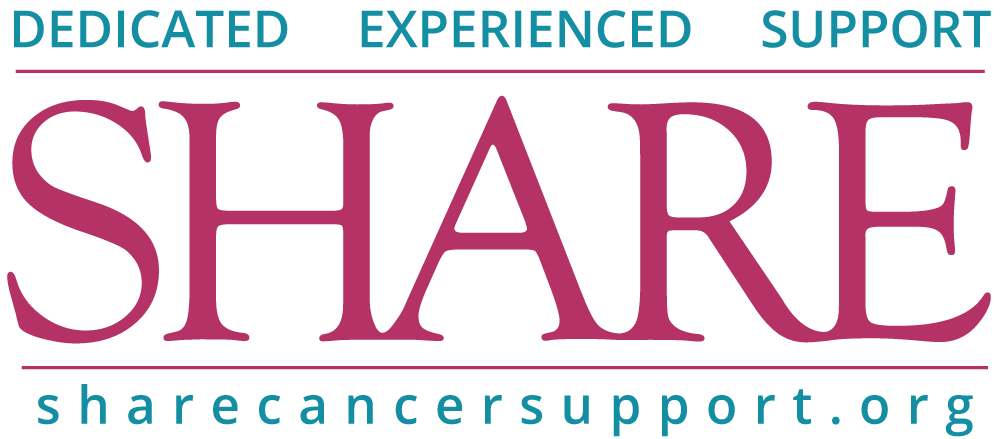
Meagan Good shares her scare with uterine cancer to encourage people to spot the early signs of endometrial cancer as part of Eisai and advocacy partners' Spot Her campaign

Spot Her aims to educate people about the signs and risk factors of endometrial cancer, one of the most common yet under-recognized women’s cancers.
NUTLEY, NJ, MARCH 30, 2022 – Actor, director and activist Meagan Good has partnered with FORCE, SHARE, Black Health Matters and Eisai Inc. on the Spot Her® campaign to help raise awareness about endometrial cancer, the most common type of uterine cancer. The initiative aims to empower people across generations and cultures to spot the potential signs early, when it may be more treatable. After having a uterine cancer scare, Meagan understands firsthand the importance of maintaining routine exams, speaking to a doctor about any concerns, and educating herself and others about gynecologic health. Through Spot Her, she hopes to help end the silence surrounding endometrial cancer, which is on the rise, particularly among communities of color.
Meagan’s uterine cancer scare came about during a routine visit to the gynecologist who discovered an abnormality in her uterus. Testing determined the tissue could potentially become cancerous so it was removed. This scare has led Meagan to be more conscious about her gynecologic health, including monitoring for concerning symptoms and speaking with a doctor as soon as they arise.
“Gynecologic health is an important conversation to have at any age, but it’s not often discussed, especially in the Black community,” said Meagan. “I’m not afraid to have open and honest conversations with my friends, family and doctor about gynecologic health and I want to encourage everyone, particularly the Black community, to do the same so more people can identify potential signs of endometrial cancer early. As women, it’s important that we support each other, speak up about gynecologic symptoms and advocate for our health when visiting our doctor. “
The symptoms of endometrial cancer, and other gynecologic cancers, can be easily overlooked or mistaken for other conditions. Some common signs of endometrial cancer may include abnormal bleeding, spotting or brownish discharge after menopause, as well as irregular or heavy bleeding before menopause, and pelvic pain or pressure. Additionally, many women with endometrial cancer have reported that their symptoms were dismissed, and they felt unable to discuss their experiences due to stigma against talking about gynecologic health.
Identifying symptoms and seeking help is particularly important for the Black community, where there are significant disparities in health care. Only 53% of Black women with endometrial cancer receive an early diagnosis which may be due to a number of intersectional factors, including a lack of dialogue with friends, family and their doctors about gynecologic health.
As part of the campaign, Meagan is participating in the Spot Her virtual walk, which encourages people to take literal steps towards increasing awareness about endometrial cancer. For every mile logged (up to 20 miles per participant) through the Charity Footprints website, or for each use of #SpotHerforEC on social media, Eisai will donate $1 (up to $20,000) between FORCE and SHARE, which provide support for people living with endometrial cancer. The Spot Her virtual walk will take place from March 30, 2022 – June 22, 2022 and Charity Footprints is offering free registration to the first 1,000 participants. To participate in the virtual walk, visit www.CharityFootprints.com/SpotHerForEC to register and join the conversation online by using #SpotHerforEC on Facebook, Instagram, or Twitter.
“As a gynecologic oncologist, I know all too well the impact endometrial cancer has on those diagnosed with this disease, as well as their loved ones,” said Ginger J. Gardner, M.D., Chair of the Foundation for Women's Cancer, and Vice Chair of the Department of Surgery at Memorial Sloan Kettering Cancer Center in New York. “Uterine cancer incidence rates are on the rise among all women in the United States, and especially among communities of color. It is important for people to openly discuss their gynecologic health concerns with their doctors so that diseases like endometrial cancer can be spotted early, when they may be more treatable, particularly so for members of the Black community, who are more likely to be diagnosed with aggressive cell types.”
“Now in its second year, the Spot Her campaign exemplifies Eisai’s human health care mission to put patients first and address the unmet needs of those who are underserved. Partnering with SHARE, FORCE and Black Health Matters empowers our efforts to better understand the unmet needs in these communities and help address them,” said Teresa Cronin, Vice President of Corporate Communications and Patient Advocacy at Eisai Inc. “By raising our voices in unison with organizations that share our commitment to educating about endometrial cancer and helping to address intersectional factors contributing to disparities in care, we aim to make a meaningful difference for those who need it most.”
To learn more about the Spot Her campaign and find helpful resources about endometrial cancer, please visit SpotHerforEC.com.
Dr. Gardner provides consulting services for Eisai Inc.
About Endometrial Cancer
Uterine cancer is the fourth most frequently diagnosed cancer in women, which resulted in an estimated 66,570 new cases and 12,940 deaths in 2021 in the U.S. alone. Accounting for more than 90% of uterine cancers, the number of endometrial cancer diagnoses in the U.S. has been steadily increasing since 1990. Found in the lining of the uterus, endometrial cancer (also known as endometrial carcinoma) may occur more commonly among those who have gone through menopause, but diagnoses are on the rise among younger people between the ages of 20 to 49, when fertility may be an important concern. Certain factors may increase the risk of developing endometrial cancer, including increased risk with age, obesity, a family history of uterine cancer or Lynch Syndrome, a high-fat diet and lack of exercise, and a history of irregular periods, among others. When diagnosed and treated early, people with endometrial cancer may have a good prognosis; however, for those with late-stage cancer, the treatment options become more limited.
About SHARE
SHARE is a national nonprofit that supports, educates, and empowers anyone who has been diagnosed with women’s cancers, and provides outreach to the general public about signs and symptoms. We are a compassionate community of knowledgeable survivors, women living with cancer, and healthcare professionals. SHARE is dedicated to serving women of all races and cultures, backgrounds and identities. Because no one should have to face breast, ovarian, uterine, cervical or metastatic breast cancer alone.
To learn more visit: www.sharecancersupport.org/
About FORCE
Facing Our Risk of Cancer Empowered (FORCE) improves the lives of the millions of individuals and families facing hereditary breast, ovarian, pancreatic, prostate, colorectal and endometrial cancers. The FORCE community includes people and families with an inherited mutation linked to cancer, including Lynch syndrome, BRCA1, BRCA2, ATM, PALB2, CHEK2, PTEN and other genes. FORCE is dedicated to providing up-to-date, expert-reviewed information and resources that help people make informed medical decisions. Its strong, supportive community of peers and professionals ensures no one must face hereditary cancer alone. FORCE serves as a champion, unifying the community and advocating for awareness, access to care, and better treatment and prevention options.
For more information, visit FORCE’s website at www.FacingOurRisk.org.
About Black Health Matters
Black Health Matters is a trusted health content and experiential woman-owned firm that offers content and programs to inform and educate consumers, patients and medical practitioners about health, wellness and chronic illnesses impacting the African American community. The platform launched in 2012 prior to the Black Lives Matters movement to support the enactment of the Affordable Care Act. The mission is to help the insured and the medically underserved improve their health literacy through self-reflective and evidence-based health content. Black Health Matters (BHM) is a leading provider of digital health and wellness solutions for African Americans. BHM delivers a highly personalized content experience drawing from touchpoints of the African American experience that empower and drive compliance. In 2020 Black Health Matters hosted more than 25 virtual forums and summits on African American health. To learn more, visit
About Eisai Inc.
At Eisai Inc., human health care (hhc) is our mission and is the shared purpose that connects us to those we serve creating a network of powerful relationships that enables us to identify, understand and work to address the needs of people throughout their lives. We boldly push past the boundaries of science and aim to deliver life-changing therapies and health-related solutions that matter to people and society. We bring together science, technology and real-world expertise to pursue a world free from cancer, Alzheimer’s disease and other neurodegenerative diseases.
Everything we do is guided by the simple principle that patients and their families come first, and we have a responsibility to listen to and learn from them.
Eisai Inc. is the U.S. pharmaceutical subsidiary of Tokyo-based Eisai Co., Ltd. The company’s presence in the U.S. includes three discovery centers as well as commercial, clinical development and global demand organizations. To learn more about Eisai, please visit us at www.eisai.com/US and follow us on Twitter and LinkedIn. For more information on our work in neurology, please visit the Eisai U.S. Neurology LinkedIn page.
Newsletter
Get the latest clinical updates, case studies, and expert commentary in obstetric and gynecologic care. Sign up now to stay informed.








